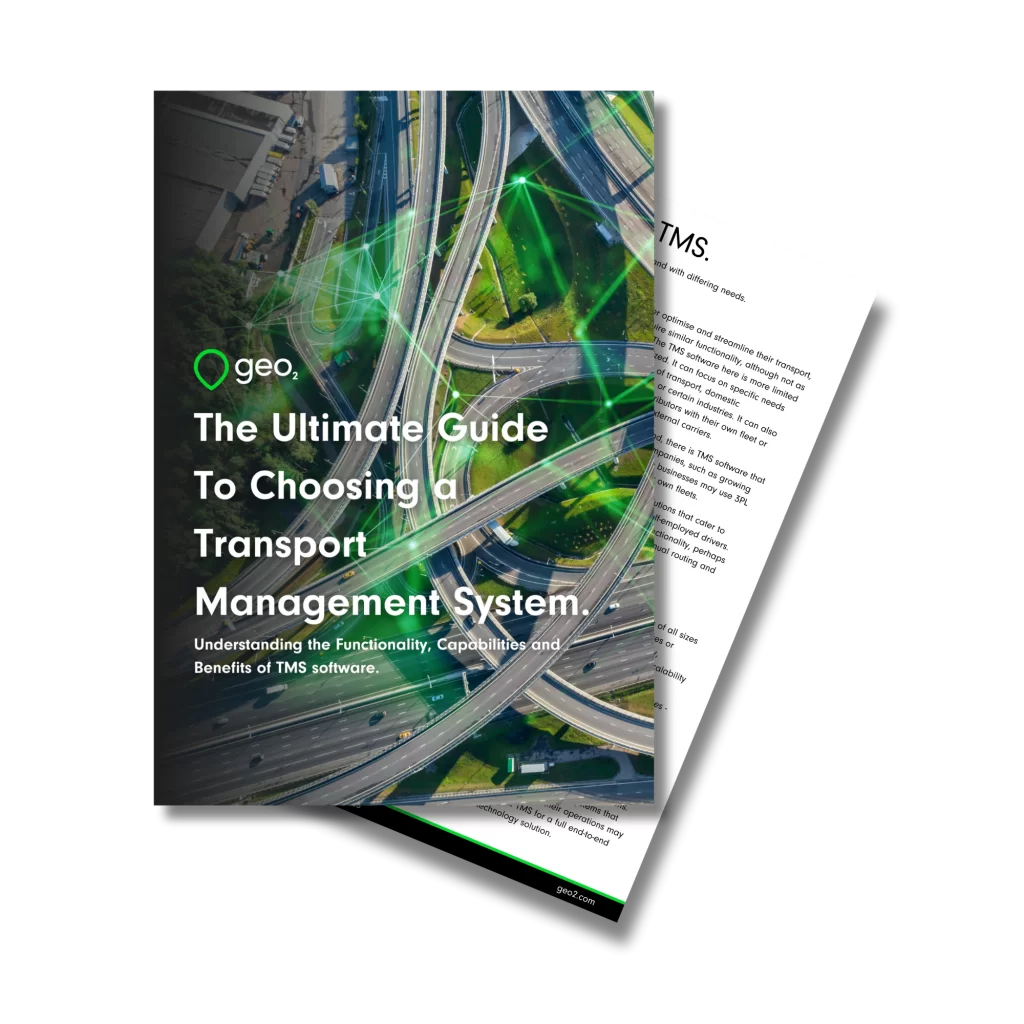
Protecting Yourself From a Parcel Delivery Scam.
Introduction.
In the golden age of online shopping, the number of parcels shipped daily has skyrocketed to unprecedented levels. This surge in parcel deliveries transforms how we buy and sell, making our lives infinitely more convenient and connected. However, it also opens a new arena for fraudsters to play their deceitful games.
Parcel delivery scams have become a sophisticated and widespread menace, targeting unsuspecting shoppers and small business owners alike. These scams can result in financial losses, identity theft, and even physical harm.
In this blog post, we will discuss scams in depth. We will give you the tools and knowledge to navigate this tricky online world and stay safe. People commonly deceive others online, so it’s important to stay informed and cautious.
Need help choosing a TMS?
Download the Free Guide Now.

Table of Contents.
The Rise of Online Shopping and Parcel Delivery Scams.
The evolution of e-commerce over the past few decades has been nothing short of remarkable. In today’s world, we can buy a wide range of items online and have them delivered right to our door. These items range from everyday necessities like toiletries to high-end electronics.
Purchasing items from home is handy and straightforward. Purchasing items from the comfort of your home is easy and straightforward. Businesses now have access to advanced technology that allows them to deliver more efficiently and track your packages in real-time. This convenience has transformed our shopping habits and expectations.
But as more people shop online, there are more chances for scams like fake parcel deliveries. Scams are getting more advanced, like fake delivery emails or stealing packages to get your personal information.

Common Parcel Delivery Scams Unwrapped.
To better protect yourself, it’s important to understand the most common types of scams:
- Phishing Emails and Texts: These scams are prevalent and known as phishing attacks. Scammers claim there’s a problem with your delivery or demand an additional payment through messages. They ask for personal information or direct payment to “release” the package, exploiting your eagerness to receive your goods.
- Fake Delivery Notices: Another method involves notices left on your door, asking you to call a number. This number leads you directly to a scammer who attempts to extract personal information, payment for non-existent delivery fees, or both.
- Package Theft: The rise in home deliveries has led to more “porch pirates” – thieves who steal packages from your doorstep before you can get them. It’s not exactly a scam, but it’s a growing problem.
Table of Contents.
Recognizing and Avoiding Scams.
To keep yourself safe, it’s crucial to recognize the red flags:
- Messages that ask for personal details or payment.
- Messages with poor grammar and spelling.
- Links to websites that do not match the official parcel delivery service domain.
Best Practices for Scam Prevention include:
- Ignoring links or attachments from unrequested emails or texts.
- Verifying the status of your delivery directly through the official website or app of the delivery service.
- Being cautious about sharing personal information online, especially in response to unrequested communications.

The Legal and Ethical Battlefield.
Parcel delivery scams pose significant personal risks and also have broad legal and ethical implications. Consumer protection organizations across the globe are escalating efforts to combat these scams, but the legal landscape remains complex. Laws differ vastly by country, and the international nature of many e-commerce transactions presents significant enforcement challenges. Moreover, as technology evolves, so do the scams, requiring constant vigilance and adaptation from both legal entities and individuals.
What To Do If You Fall Victim?
If, despite your best efforts, you find yourself a victim of a parcel delivery scam, here are the steps to take:
- Document Everything: Keep copies and records of all communication with the scammer, including emails, texts, and phone calls.
- Report the Scam: Alert your local authorities as well as the parcel delivery service used in the scam. You can also report it to organizations like Consumer Protection agencies or the Federal Trade Commission (FTC).
- Monitor Your Accounts: If you shared personal information or made any payment, watch your accounts for anything odd.
- Spread Awareness: Share your experience with others to help prevent them from falling prey to similar scams in the future.
Conclusion.
In the increasingly intricate web of online transactions and deliveries, staying informed about the latest scams is more crucial than ever. Adopting the practices mentioned above and fostering a community that shares information and experiences can help create a safer online shopping environment for everyone.
Next time you see a suspicious website or get a strange email, think twice before clicking on links or sharing your personal info. Remember, staying vigilant is the key to staying safe in the digital age.






